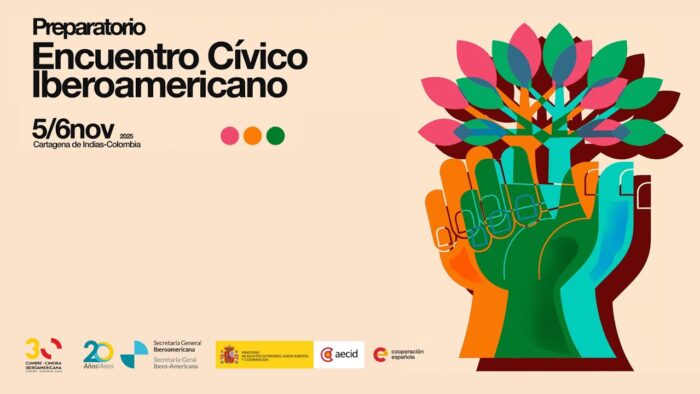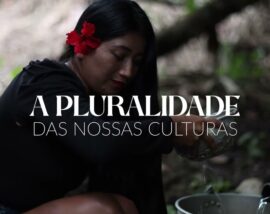Organization: UN Children’s Fund
Country: Brazil
Closing date: 13 Apr 2017
If you are a committed, creative professional and are passionate about making a lasting difference for children, the world’s leading children’s rights organization would like to hear from you.
For 70 years, UNICEF has been working on the ground in 190 countries and territories to promote children’s survival, protection and development. The world’s largest provider of vaccines for developing countries, UNICEF supports child health and nutrition, good water and sanitation, quality basic education for all boys and girls, and the protection of children from violence, exploitation, and AIDS. UNICEF is funded entirely by the voluntary contributions of individuals, businesses, foundations and governments.
Purpose of the Position
Under the guidance of the Chief of Field Office, São Paulo, NO3 and Chief of Health and HIV/AIDS Unit, NO4, the HealthOfficer is responsible for providing professional technical, operational and administrative assistance throughout the programming process for the Health and HIV/AIDS Unit within the Country Programme from development planning to delivery of results, preparing, executing, managing and implementing a variety of technical and administrative tasks to facilitate interventions and projects development, implementation, progress monitoring, evaluating and reporting of results.
Key Accountabilities and Duties & Tasks
1. Support to interventions, projects development and planning
– Conduct/update situation analysis for the programme sector(s) for development, design and management of Health and HIV/AIDS Unit. Research and report on development trends (e.g. political, social, economic) for higher management use to enhance interventions/projects development planning, management, efficiency and delivery of results.
– Contribute to the development/establishment of Health and HIV/AIDS Unitthematic goals, objectives and strategies and results-based planning through analysis of Health and HIV needs and areas for intervention and submission of recommendations for priority and goal setting.
– Provide technical and operational support throughout all stages of programming processes by executing/administering a variety of technical programme transactions. Preparing materials/documentation and complying with organizational processes and management systems, to support programme planning, results based planning (RBM) and monitoring and evaluating results.
– Prepare required documentations/materials to facilitate the programme review and approval process.
2. Health and HIV/AIDS thematic area management, monitoring and delivery of results
– Work closely and collaboratively with internal and external partners to discuss operational and implementation issues, provide solutions, recommendations and/or alert appropriate officials and stakeholders for higher-level intervention and/or decision. Keep record of reports and assessments for easy reference and/or to capture and institutionalize lessons learned.
– Participate in monitoring and evaluation exercises, mid and annual reviews with government and other counterparts to assess programmes/projects and to report on required action/interventions at the higher level of programme management.
– Monitor and report on the use of unit resources (financial, administrative and other assets), verify compliance with approved allocation/goals, organizational rules, regulations/procedures and donor commitments, standards of accountability and integrity. Report on issues identified to ensure timely resolution by management/ stakeholders. Follow up on unresolved issues to ensure resolution.
– Prepare regular/mandated unit interventions/project reports for management, donors and partners to keep them informed of programme progress.
3. Technical and operational support to Health interventions/projects implementation
– Conduct regular field visits and surveys and/or exchange information with partners/stakeholders to assess progress and provide technical support, take appropriate action to resolve issues and/or refer to relevant officials for resolution. Report on critical issues, bottlenecks and potential problems for timely action to achieve results.
– Provide technical and operational support to government counterparts, NGO partners, UN system partners and other country office partners/donors on the application and understanding of UNICEF policies, strategies, processes and best practices on Health and HIV/AIDS related issues to support programme implementation, operations and delivery of results.
4. Networking and partnership building
– Build and sustain effective close working partnerships with relevant sector government counterparts and subnational stakeholders through active sharing of information and knowledge to facilitate Health and HIV/AIDS interventions/projects implementation and build capacity of stakeholders to achieve Country Programme goals.
– Draft information and technical materials for CO programme advocacy to promote awareness, establish partnership/alliances and enhance resource mobilization for UNICEF Health and HIV/AIDS Unit.
– Participate in meetings/events on programming to collaborate with inter-agency partners/colleagues on UNDAF operational planning and preparation of Health and HIV/AIDS interventions/projects and to integrate and harmonize UNICEF position and strategies with the UNDAF development and planning process.
5. Innovation, knowledge management and capacity building
– Identify, capture, synthesize and share lessons learned for knowledge development and to build the capacity of stakeholders.
– Apply innovative approaches and promote good practice to support the implementation and delivery of concrete and sustainable programme components results.
– Research, benchmark and report on best and cutting edge practices for development planning of knowledge products and systems.
– Participate as resource person in capacity building initiatives to enhance the competencies of clients/stakeholders.
Qualifications of Successful Candidate
Education
– First level university degree (Bachelor’s or equivalent) in public health, pediatric health, family health, health research, global/international health, health policy and/or management, environmental health sciences, biostatistics, socio-medical, health education, epidemiology or other health related sciences is required.
Experience- A minimum of two (2) years of professional progressive work experience in Health and HIV/AIDS planning and management and/or in relevant areas of health care, health/emergency preparedness, at the national and/orinternational level, is required.
– Previous relevant work experience inHealth and HIV/AIDS programme/project developmentin UN system and/or agency is considered an asset.- Additional years of relevant experience in the above mentioned fields is considered an asset.
Language
– Fluency in Portuguese and English is required. Knowledge of an additional UN Language (Arabic, Chinese, Russian, Spanish) is considered an asset.
Competencies of Successful Candidate
Core Values
•Commitment
•Diversity and Inclusion
•Integrity
Core competencies
•Communication (II)
•Working with People (I)
•Drive for Results (I)
Functional competencies
•Formulating strategies and concepts (I)
•Analyzing (II)
•Applying technical expertise (II)
•Learning and researching (II)
•Planning and organizing (II)
To view our competency framework, please click here.
Please note that this Vacancy Announcement is open for competition to Brazilian nationals only.
UNICEF is committed to diversity and inclusion within its workforce and encourages qualified female and male candidates from all religious and ethnic backgrounds, representing the diversity of Brazil, such as black and indigenous people, to apply to become a part of our organization. Candidates will be treated equally regardless of gender, sexual orientation, special needs, social and HIV/aids status. UNICEF is a smoke-free environment.
How to apply:
UNICEF is committed to diversity and inclusion within its workforce, and encourages qualified female and male candidates from all national, religious and ethnic backgrounds, including persons living with disabilities, to apply to become a part of our organization. To apply, click on the following link http://www.unicef.org/about/employ/?job=503769


